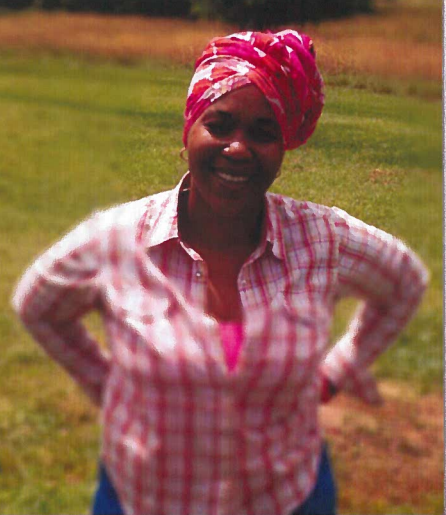The American Civil Liberties Union filed a federal lawsuit Aug. 30 on behalf of a Christian woman forced to remove her headscarf for a driver’s license photo in violation of her religious convictions.
The lawsuit says Yvonne Allen of Tuskegee, Ala., is a devout Christian woman who believes the Bible commands in First Corinthians Chapter 11 that she show her submission to God by covering her hair in public. When she went to renew her license at a Lee County driver license office in December 2015, she claims county officials told her a religious accommodation available for head coverings applied only to Muslims.
“I was devastated when they forced me to remove my headscarf to take my driver license photo,” Allen said in a press release. “Revealing my hair to others is disobedient to God. I should have the same right as people of other faiths to be accommodated for my religious beliefs.”
The lawsuit says Lee County’s refusal to grant Allen a religious accommodation contradicts state rules and violates her rights under the First Amendment to the U.S. Constitution and the Alabama Constitution.
“The county’s interpretation of state rules blatantly violates the First Amendment,” said Susan Watson, executive director of the ACLU of Alabama. “The government cannot discriminate between faiths in granting religious accommodations.”
While controversies today over religious dress accommodation such as the current debate over France’s burkini ban and the 2015 Supreme Court ruling against retailer Abercrombie & Fitch often involve Muslims, the lawsuit points out that before the 20th century most women wore some sort of head covering when they attended church.
Church Fathers like Hippolytus of Rome and Protestant Reformer Martin Luther taught that women should wear veils during public worship.
While most followers of Western Christianity have abandoned the practice relatively recently, it is still practiced today in some conservative Mennonite and Amish traditions.
In recent years the practice has spread to other denominations in the form of a “head covering movement” embraced by some in the “complementarian” branch of American evangelicalism that emphasizes male headship and wifely submission in the church and home.
A website devoted to “The Head Covering Movement” provides resources such as articles, testimonies, sermons and how to find a head-covering church. A page titled “Our Favorite Head Covering Sermons” links to a series of sermons on First Corinthians 11:2-16 preached in 2015 by Pastor Mark Minnick at Mount Calvary Baptist Church in Greenville, S.C., a Bob Jones University graduate who sits on the executive board of Fundamental Baptist Fellowship International.
Garlands of Grace, an online mail-order business in Blanco, Texas, specializes in classic and one-of-a-kind head wraps priced in the $18-$30 range.
Complementarians differ over whether Paul’s admonition that it is a “disgrace” for a woman to pray or prophesy with her head uncovered applies to Christians today.
Dorothy Patterson, the wife of Southwestern Baptist Theological Seminary President Paige Patterson rarely seen in public without a hat, said in 2011 the principle behind the passage is acknowledging the headship of the husband in the home, in Paul’s day symbolized by wearing a veil.
“In the modern day when we marry, we choose to marry, and as Christian women we want to say that we are under the headship of our husbands as we understand God to have prescribed in His creation order, we wear a wedding ring, and that says to anyone who sees us that we have chosen to marry,” Patterson explained in a Conference on Biblical Manhood and Womanhood on the seminary campus. “But at that time it seems to me from what I have seen in biblical background and other things that it was not the wedding ring so much as it was this covering of the head that indicated the fact that a woman had chosen to marry and chosen to stand under the authority of her husband.”
Mary Kassian, a distinguished professor of Women’s Studies at Southern Baptist Theological Seminary in Louisville, Ky., and member of the Council on Biblical Manhood and Womanhood, encouraged women to veil themselves as a “behavioral expression” of wifely submission in her 1990 book Women, Creation and the Fall.
The lawsuit doesn’t say what church Allen attends.
“Regardless of how widespread the practice has been historically, or how commonly it is followed today, Ms. Allen sincerely believes that her personal Christian faith compels her to cover her hair when in public,” the lawsuit claims.
It asks that she be allowed to retake her driver’s license photo wearing a headscarf and that the county be ordered to pay her court costs.

